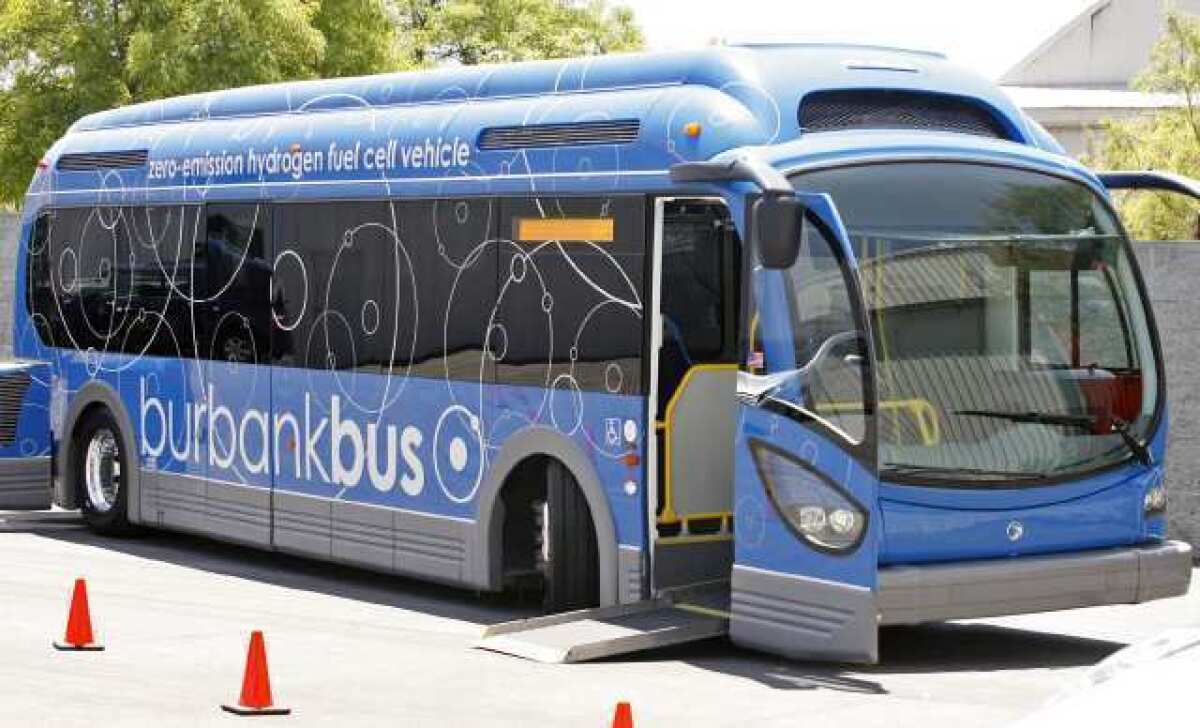High-tech bus to roll into Burbank

- Share via
A yearlong test of a new hydrogen/electric hybrid bus could start as soon as this summer, officials say, putting Burbank among a select group of cities that are trying out the technology to reduce emissions.
The demonstration project was born out of a 2007 partnership with Proterra, the company that manufactures the bus, with funding from the California Air Resources Board, said Jonathan Frank, with Burbank’s Park, Recreation and Community Services Department.
Through the alternative fuel incentive program, which expands hydrogen infrastructure throughout the state, Burbank was awarded about $1.3 million, with Proterra providing in-kind contributions, Frank said.
“The goal is to demonstrate this hydrogen-hybrid technology, and maybe help the city transition this type of product into city fleets,” he said.
Doing so would help meet a state initiative for zero emissions, Frank added.
“From Burbank’s perspective, we are always in the forefront of publicizing and testing alternative-fuel vehicles in our fleet,” he said.
Burbank’s transportation system is already operating on 100% clean natural gas, or CNG, and other hybrid and electric vehicles are used by the city, he added.
Road testing the bus will provide useful information to the California Air Resources Board for other projects, and which type of fuel is best for the way the bus is being used, Frank said.
South Carolina-based Proterra — which manufactures the prototype plug-in, fuel-cell hybrid bus — will be available to assist with any mechanical issues and to train employees on how to operate and drive the bus.
There are 37 seats in the 35-foot bus, and 27 more passengers can stand, Joshua Goldman, director of business development at Proterra, said last week at city-sponsored electric-vehicle event, where the bus was on display.
The passenger capacity is nearly the same as a 40-foot bus, he added.
“Because we don’t have a big engine compartment for a diesel engine, we can push the seats all the way to the back of the bus,” Goldman said.
The bus’ battery has a one- to two-hour charge time, which may be fast for a passenger car, but slow for a Proterra all-electric bus, which can charge up in just 10 minutes, Goldman said.
Two hydrogen fuel cells and the plug-in electric power keep the bus running all day, he said.
“This is the second of three buses like this in world that Proterra built as prototype demonstration units with federal and state funding,” Goldman said.
Similar buses are being tested in Austin and the Fort Louis Army base in Washington state, he said.